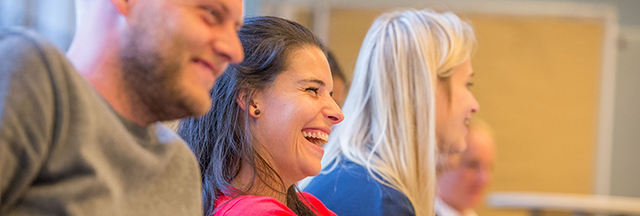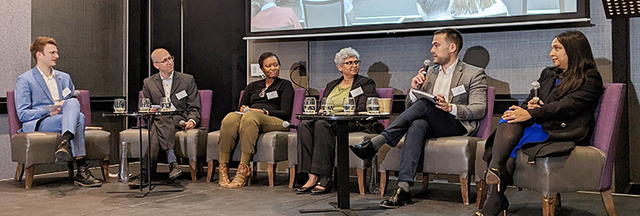Content and structure of the Programme
The Postgraduate Programme starts on 1 September each year and runs for a period of nine months. The Programme comprises the following modules:

Research Team Module
The Research Team Module is the core of our Programme and spans nearly the entire duration of the Programme. The module comprises the preparation and implementation of an empirical research project providing policy-advice. The research topics in the projects reflect current trends in international cooperation. All teams are in close contact with partner institutions. Team leads are IDOS researchers, with some of the teams working together with a co-lead and postgraduates from our partner institutions. This allows us to bring together expertise and different perspectives and offers the opportunity to work together on a topic relevant to both institutions.
The Research Team Module combines research with the provision of policy recommendations for political decision-making (science-policy interface). Participants acquire the competence to assess research findings through their own research, enabling them to make empirically based decisions in their future careers. They develop competences in collaborating with partners. Participants become aware of the limitations of partnership-based cooperation by reflecting on power hierarchies within global inequalities.
Academic Modules
In ten three-day modules, participants gain an overview of fundamental topics in international cooperation and engage with current issues related to development and sustainability. Some modules may also take place in collaboration with our training and dialogue formats MGG and Shaping Futures. A gender perspective is integrated as a cross-cutting issue across all academic modules, as we consider gender a fundamental social structure.
Academic modules can include the following topics:
- introduction to development and sustainability
- critical perspectives on development cooperation
- social cohesion
- fragility and peace
- climate change
- biodiversity
- migration and forced displacement
- EU external relations and development cooperation
- etc.
Peer-learning days provide participants the opportunity for mutual exchange and learning from each other.

Policy Module - Policy Advice and Policy Dialogue
As a think -tank, IDOS combines research, policy -advice and training. Our advisory work is based on independent and empirical research. In their careers, our alumni engage in various areas of policy advice: as decision-makers, they are seeking advice; as advisers in implementing organisations, researchers in think tanks or experts in consultancies, they are providing advice. In all roles, they need basic knowledge of policy advice. During the Programme, participants will gain experience in how to base policy advice on their own research findings.

Empirical Research Methods Module
Courses on empirical research methods are oriented by the needs of the research teams. In this module, participants prepare for an ethical assessment of their research project, which is reviewed by the Research Ethics Committee (REC). Sessions on positionality or critical whiteness raise awareness that we as researchers are embedded in global power hierarchies and shaped by our positionality and privileges.
Practical Module - International Cooperation as a Career
Alumni of the Programme work in bilateral and multilateral institutions of international development. The professional field ranges from governmental organisations to the private sector, non-governmental organisations and research institutions. In individualised, career-oriented coaching and career trainings, participants receive orientation on possible career paths. Through personal contacts with main actors in the field of international cooperation, the Postgraduate Programme is a gateway to a career in international cooperation.
How do we learn?
In our training and knowledge cooperation formats, we follow the principle of learning from and with each other. Our aim is to strengthen the competences of our participants. The modules characterise a broad mix of methods and interactive formats with a high degree of participant involvement. They are designed by IDOS researchers and benefit from the involvement of experts from ministries, implementing organisations, international organisations and non-governmental organisations (NGOs) as well as external trainers.
